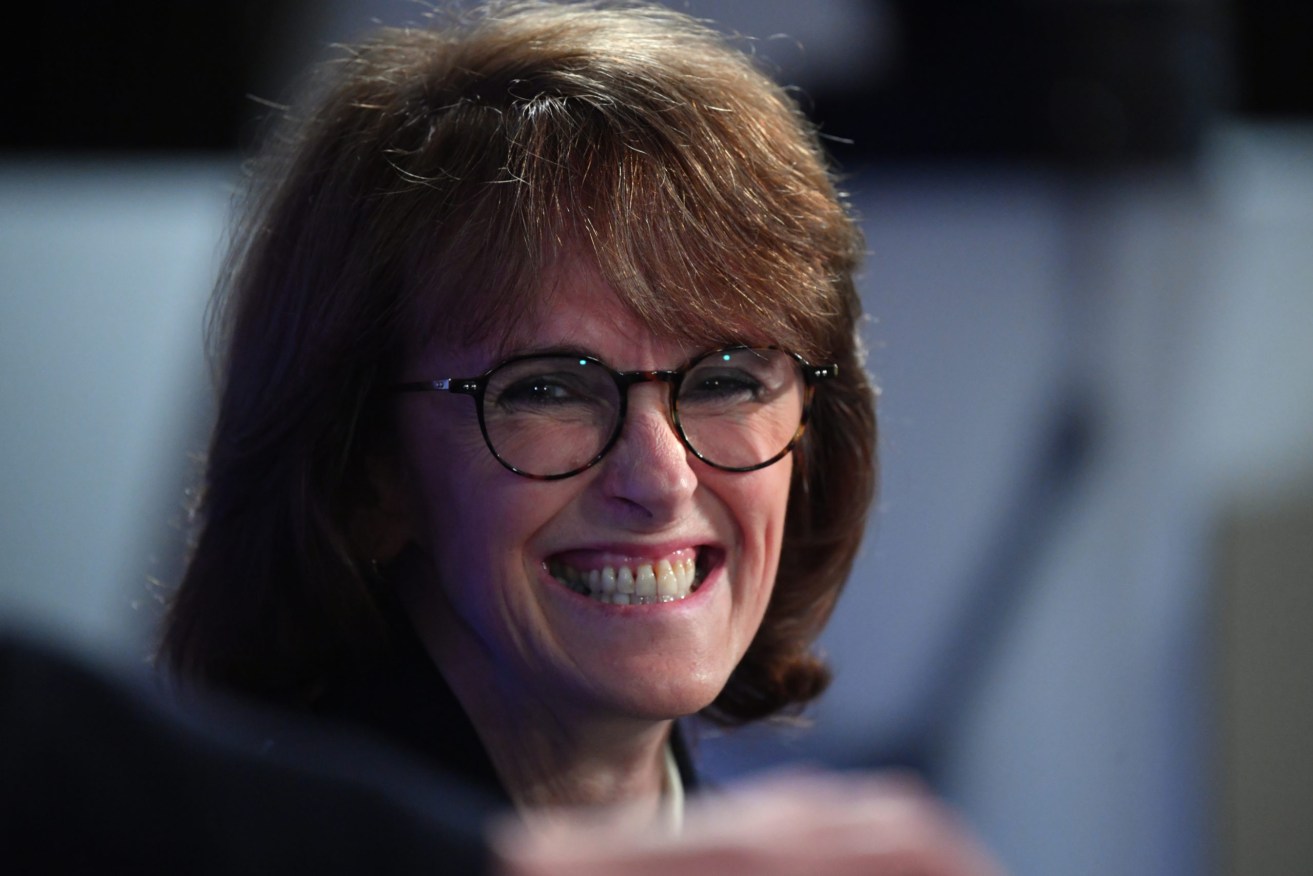Chief scientist wants research to be ‘great enabler’
Australia’s new chief scientist Cathy Foley wants to help researchers commercialise their academic research to get the full impact of innovation.

Australia's Chief Scientist Dr Cathy Foley. Photo: AAP Image/Mick Tsikas
Australia’s scientific research should not just end as academic writing but lay the groundwork for innovative products to benefit the nation.
That was Foley’s focus as she gave her first major address in the role.
Foley worked on indium nitride for her PhD, finding the chemical was responsive to the right spectrum for creating white light.
She published her research in a paper and left it at that, but a Japanese team later progressed the findings and won a Nobel Prize as it laid the groundwork for LED lights.
“With the benefit of hindsight, you might describe that as a brutal lesson in lost opportunities,” Dr Foley told the National Press Club.
“Not only for me, but for Australia.”
As chief scientist she is determined for researchers to branch out into commercialising their work.
“This is the task of building connections and collaboration to advance the adoption of Australian science, technology and innovation,” Foley said.
“To take our science to impact.
“I will be strongly focused on this – on making sure the baton is passed smoothly.”
Foley said Australia was responsible for about two per cent of the world’s research, emphasising the need to continue collaborating with partners like China, the US and Europe.
“In order to make sure you make the most of the brilliance around the world, you need to collaborate with the best.”
The physicist took the reins as chief scientist from Alan Finkel in December.
Foley had spent the past two years as the CSIRO’s chief scientist and is the second woman appointed to the role.
She worked at the national science agency for 36 years.
Foley said she had four key focus areas.
The first was to utilise the fast-changing tools of science, namely artificial intelligence and quantum computing.
Her second focus is on new ways of teaching to increase science literacy for Australians.
Her other focuses are improving access to academic research to boost diversity in science and technology.
“More women in science, engineering and technology is only part of the diversity equation,” she said.
“It shouldn’t need saying that we are more likely to succeed if we use our full human potential.
If we call on as many different perspectives, experiences and backgrounds as we can, including the knowledge base of Indigenous Australians.”
Foley is considering developing an open access strategy, which would allow scientific research to be freely read.
“Access to information is the great enabler for innovation and for research commercialisation,” she said.
“Lack of access to information is a real roadblock, and hinders our ability to compete internationally.
“This is a significant challenge for practitioners such as pharmacists, teachers and nurses, or people in business wanting to keep up with latest research in their field.”












